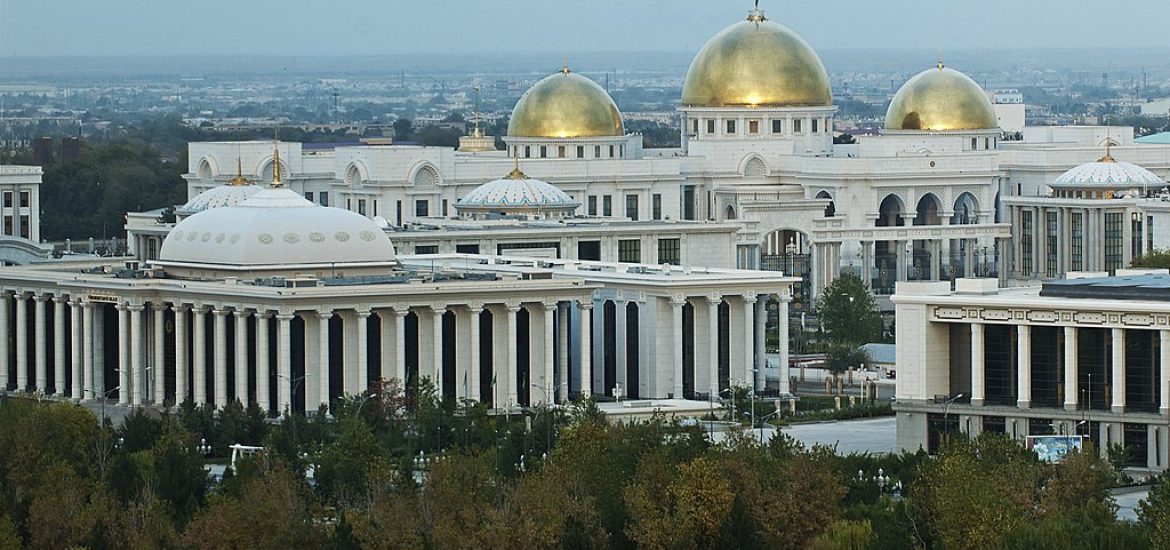
Russian gas-export monopoly Gazprom says it is starting to import natural gas from Turkmenistan for the first time in three years ago.
Russia was the leading importer of Turkmenistan’s gas until it was overtaken by China in 2010.
Landlocked Turkmenistan has the world’s fourth-largest known reserves of natural gas but few export options.
If the short, 10-week contract with Gazprom is extended, the volumes in the current deal suggest an annual volume of around 6 billion cubic metres.
Cheap gas from Central Asia enabled Gazprom to increase its exports to Europe.
Russia’s complete halt of Turkmen gas imports in 2016, which followed the collapse of prices in 2014, put significant pressure on Turkmenistan’s fossil-fuel-dependent economy.
Talks between Gazprom and Turkmengaz over a renewed gas-supply deal had been deadlocked over the price dispute with Gazprom saying by 2016 that the imports were no longer profitable.
The Kremlin’s relations with Ashgabat (pictured) were also becoming less cordial over competition to supply the large Chinese gas market.
Gazprom moved the dispute to the Stockholm arbitration court in June 2015, but abandoned the case in 2016 “with a view to finding a mutually acceptable solution on further cooperation outside the framework of the arbitration”.
The Russian gas giant plans to start its own natural gas sales to China through its new Siberian pipeline this year, increasing exports to 38 bcm per year.
Turkmengaz has become reliant on demand from China, which last year imported around 40 bcm of Turkmenistan’s gas via the Central Asia-China pipeline. Turkmenistan is also keen to open up a supply route to Europe under the Caspian Sea and through Azerbaijan.
The new Russian deal could be a bid by Moscow to hamper plans to build any trans-Caspian pipeline to reach the Southern Gas Corridor with Italy as the final destination.
In August 2018, the prospects for a trans-Caspian gas pipeline from Turkmenistan to Azerbaijan received a boost when the five nations with a Caspian coast – Iran, Azerbaijan, Russia, Kazakhstan and Turkmenistan – agreed on the legal terms for how to divide up the sea’s resources after 20 years of disagreements.
Turkmen President Gurbanguly Berdymukhammedov last year ended free natural gas, electricity and water to residents in an effort to save money.
In January, Turkmenistan began work on a cross-country highway project to boost regional trade. Bilateral relations have improved with Uzbekistan, which has Central Asia’s largest population, since the September 2016 death of veteran Uzbek dictator Islam Karimov.
Ashgabat. Picture credit: Wikimedia





